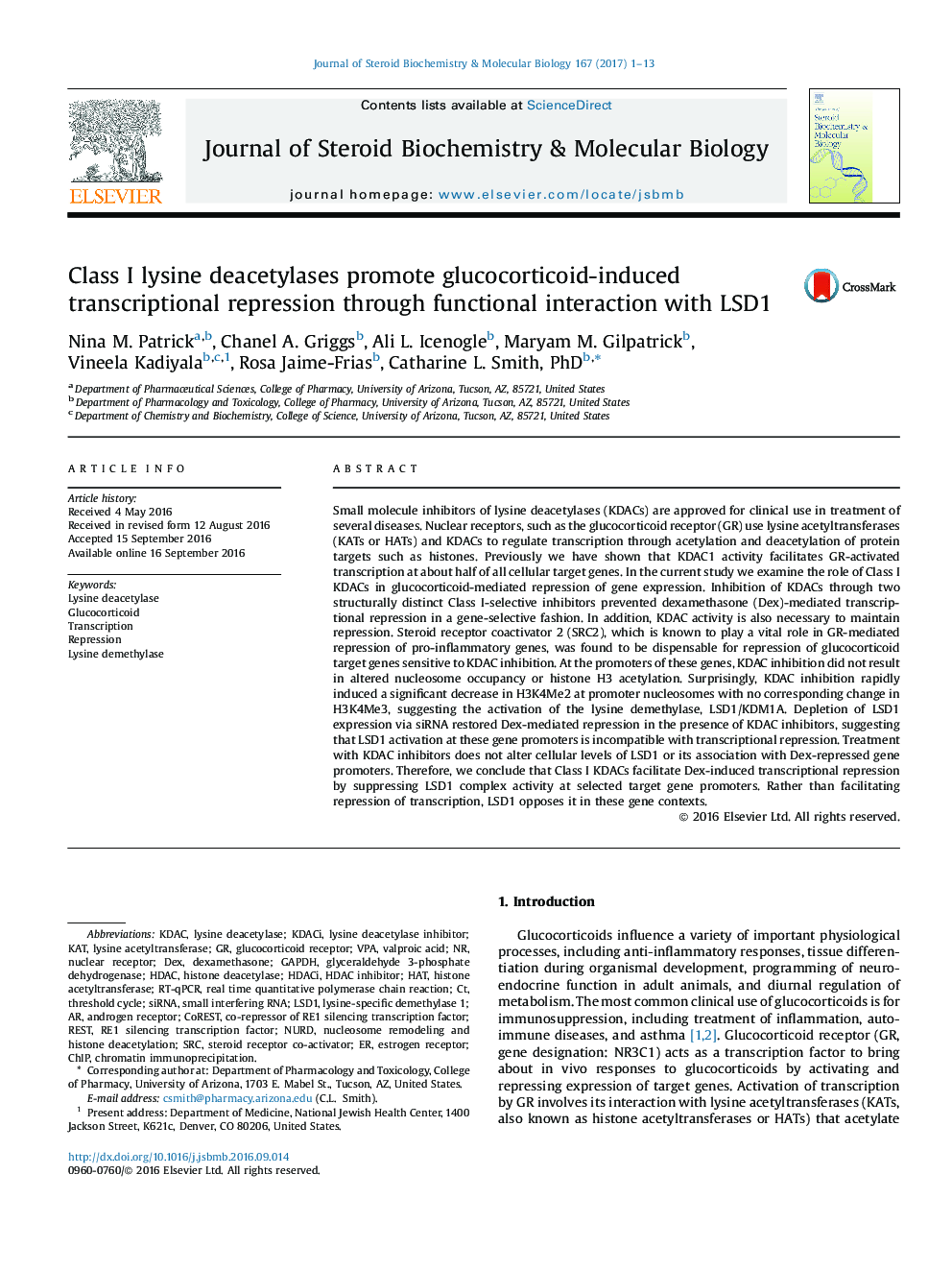| کد مقاله | کد نشریه | سال انتشار | مقاله انگلیسی | نسخه تمام متن |
|---|---|---|---|---|
| 5513102 | 1540980 | 2017 | 13 صفحه PDF | دانلود رایگان |

- Lysine deacetylases (KDACs or HDACs) are required for glucocorticoid-mediated transcriptional repression in a gene-selective fashion.
- KDACs promote transcriptional repression through suppression of LSD1 complex activity at selected target promoters.
- Pharmacological modulation of KDACs or LSD1 in treatment of disease could significantly impact glucocorticoid-regulated transcription and alter cellular response.
Small molecule inhibitors of lysine deacetylases (KDACs) are approved for clinical use in treatment of several diseases. Nuclear receptors, such as the glucocorticoid receptor (GR) use lysine acetyltransferases (KATs or HATs) and KDACs to regulate transcription through acetylation and deacetylation of protein targets such as histones. Previously we have shown that KDAC1 activity facilitates GR-activated transcription at about half of all cellular target genes. In the current study we examine the role of Class I KDACs in glucocorticoid-mediated repression of gene expression. Inhibition of KDACs through two structurally distinct Class I-selective inhibitors prevented dexamethasone (Dex)-mediated transcriptional repression in a gene-selective fashion. In addition, KDAC activity is also necessary to maintain repression. Steroid receptor coactivator 2 (SRC2), which is known to play a vital role in GR-mediated repression of pro-inflammatory genes, was found to be dispensable for repression of glucocorticoid target genes sensitive to KDAC inhibition. At the promoters of these genes, KDAC inhibition did not result in altered nucleosome occupancy or histone H3 acetylation. Surprisingly, KDAC inhibition rapidly induced a significant decrease in H3K4Me2 at promoter nucleosomes with no corresponding change in H3K4Me3, suggesting the activation of the lysine demethylase, LSD1/KDM1A. Depletion of LSD1 expression via siRNA restored Dex-mediated repression in the presence of KDAC inhibitors, suggesting that LSD1 activation at these gene promoters is incompatible with transcriptional repression. Treatment with KDAC inhibitors does not alter cellular levels of LSD1 or its association with Dex-repressed gene promoters. Therefore, we conclude that Class I KDACs facilitate Dex-induced transcriptional repression by suppressing LSD1 complex activity at selected target gene promoters. Rather than facilitating repression of transcription, LSD1 opposes it in these gene contexts.
Journal: The Journal of Steroid Biochemistry and Molecular Biology - Volume 167, March 2017, Pages 1-13